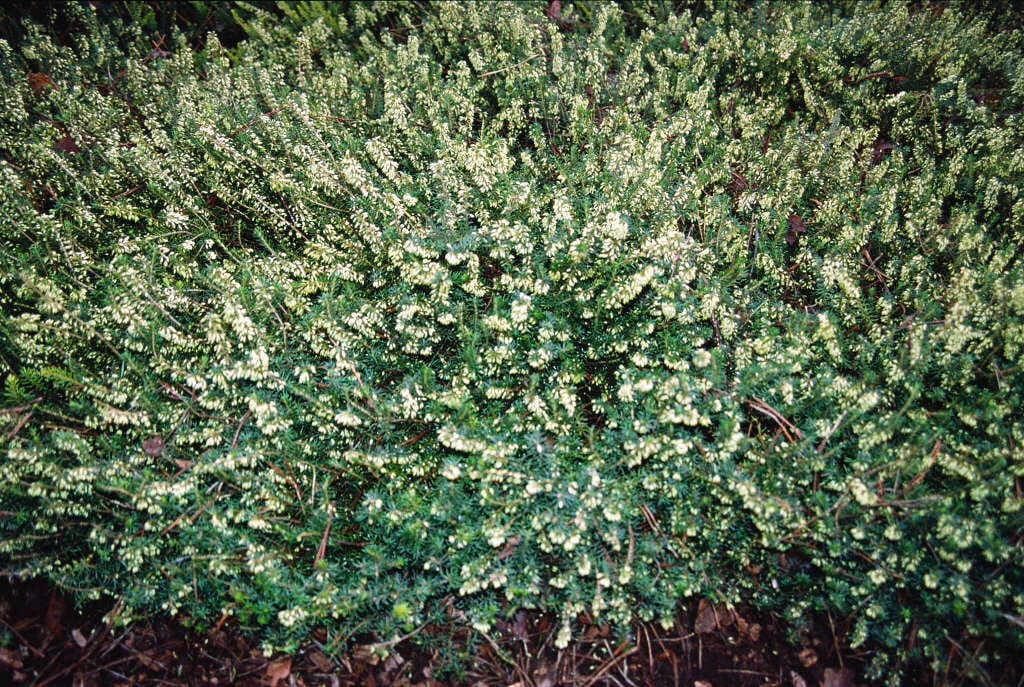Size
Ultimate height
0.1–0.5 metresTime to ultimate height
2–5 yearsUltimate spread
0.1–0.5 metresGrowing conditions
Moisture
Moist but well–drained, Well–drainedpH
Acid, Alkaline, NeutralColour & scent
| Stem | Flower | Foliage | Fruit | |
| Spring | White | Green | ||
|---|---|---|---|---|
| Summer | Green | |||
| Autumn | Green | |||
| Winter | White | Green |
Position
- Full sun
- Partial shade
Aspect
West–facing or East–facing or South–facing or North–facing
Exposure
Exposed or Sheltered Hardiness
H6Botanical details
- Family
- Ericaceae
- Native to GB / Ireland
- No
- Foliage
- Evergreen
- Habit
- Matforming
- Genus
Erica can be prostrate or erect, evergreen shrubs with fine, needle-like leaves in whorls, and racemes or panicles of small, bell-shaped or tubular flowers
- Name status
Accepted
How to grow
Cultivation
A lime-tolerant heather, prefers well-drained neutral to acid soil in full sun but tolerant of alkaline soils and some shade. See Hardy heathers for further advice
Propagation
Propagate by semi-hardwood cuttings
Suggested planting locations and garden types
- Patio and container plants
- Wildlife gardens
- City and courtyard gardens
- Coastal
- Cottage and informal garden
- Rock garden
- Low Maintenance
- Ground cover
- Banks and slopes
- Flower borders and beds
- Garden edging
Pruning
Pruning group 10 after flowering
Pests
Generally pest-free
Diseases
May be susceptible to fungal diseases, including honey fungus (rarely), and Phytophthora root rot, in wet conditions
Get involved
The Royal Horticultural Society is the UK’s leading gardening charity. We aim to enrich everyone’s life through plants, and make the UK a greener and more beautiful place.
